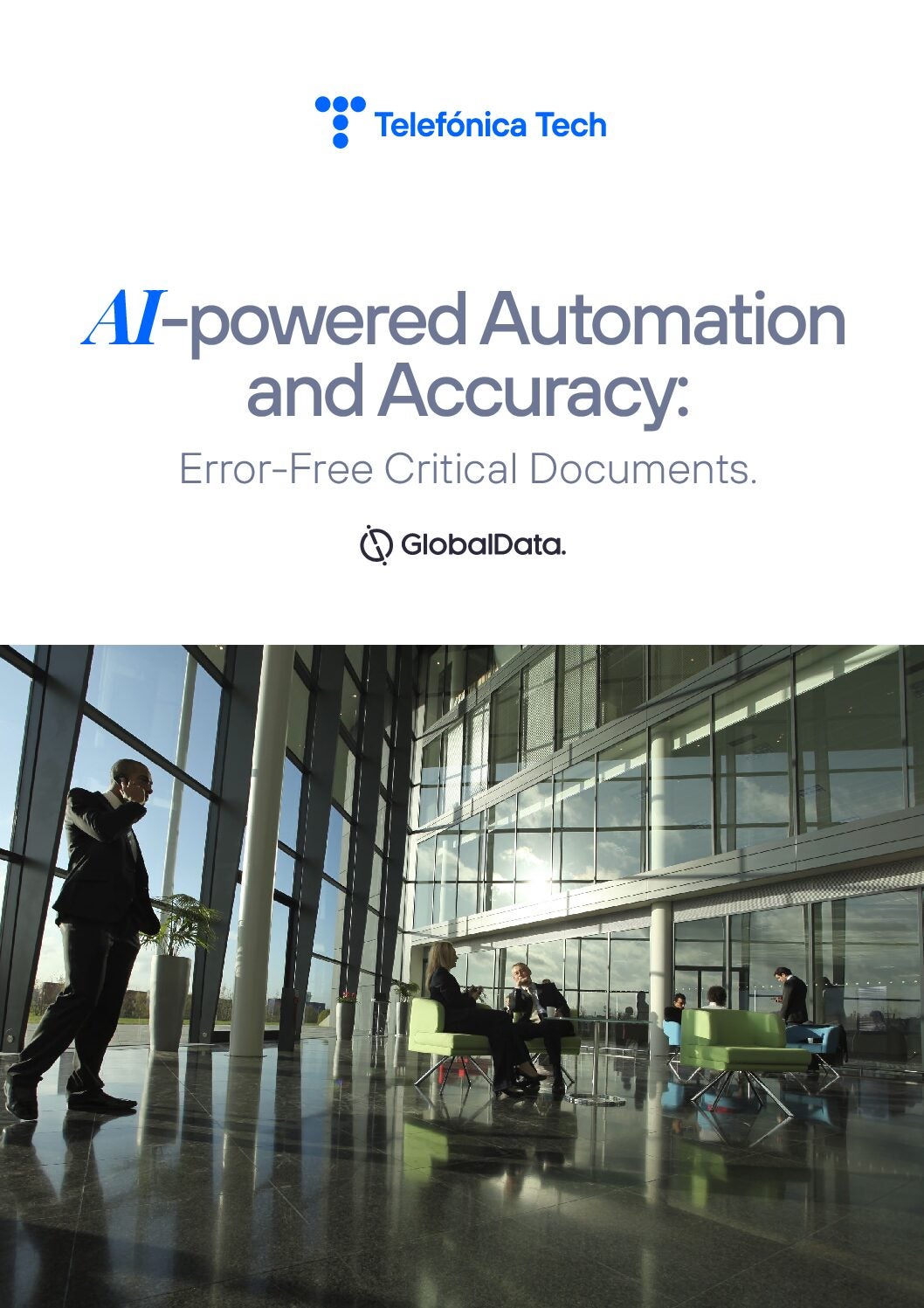
Historically, the implementation of technologies in the analysis of confidential or private data has been slow, mainly due to limited digitalisation and reluctance to trust computer systems to manage sensitive information. Technology is often seen as an adversary or a risk, with teams preferring manual methods because they are considered more secure and controllable, despite being less efficient. However, increasing pressure to improve efficiency and comply with regulations is driving the adoption of artificial intelligence (AI) to handle large volumes of data more effectively.
“The challenges faced by companies across all sectors are mainly the same,” says Alfonso Ibáñez, Head of Artificial Intelligence & Analytics Technology at Telefonica Tech. “In financial or healthcare companies, regulations are complex, and obligations are greater. In the industrial sector, intellectual property and trade secrets come into play. The main challenge for any team dealing with critical documents in these sectors is the workload and tight deadlines. This dual pressure often results in less time being spent on reviews than would be ideal, or in delays that go far beyond what is desired.”
The matter of data confidentiality is critical, especially in these sectors, necessitating the use of special measures for information handling, which further increases the workload and need for resources.
“If we focus on the healthcare sector, for example, medical data is considered especially sensitive, and applicable regulations require the implementation of special measures for its processing,” says Alfonso. “Any information breach in this area poses a significant risk for companies as they may face substantial fines and a loss of trust from their stakeholders, which are often penalised with severe sanctions.”
But it doesn’t need to be that way.
Beyond the boundary
Advances in technology are paving the way for a revolutionised approach to critical document analysis, one that can provide cost-optimisation, streamlined resources, and a reduction in errors. The advent of AI in this field is transforming the document analysis process, providing an efficient, and increasingly accurate alternative to manual analysis. Using a combination of advanced algorithms, natural language processing (NLP), and machine learning (ML), AI can quickly analyse text and extract important information.
One of the most prominent benefits of AI in critical document analysis is its ability to process vast amounts of information much faster than humans. AI can perform tasks in a matter of seconds, which would otherwise take weeks if done manually. This capability allows staff to allocate more time to complex tasks and strategic decisions rather than tedious document reviews.
These tools are designed to reduce human errors, automatically flagging inconsistencies, highlighting differences between document versions, and assisting in identifying errors. This not only improves the quality of the documents but also ensures compliance with legal standards.
The drafting and reviewing process is also being overhauled. With Generative AI (GenAI), it can create initial drafts of documents based on simple inputs to be reviewed by humans and provide a natural language interface to query specific questions.
Fully customised solutions
With the help of AI, the future of legal document analysis looks promising and, as the technology develops, more sophisticated solutions capable of nuanced interpretation are anticipated. These include advanced predictive analytics, deeper integration with blockchain technology, and enhanced natural language understanding.
Leading the charge in revolutionising the space is Telefonica Tech, offering one of the most complete proposals on the market focused on boosting efficiency. Telefonica Tech’s approach typically begins with a consulting phase to assess and select the best solution for integrating the most efficient technologies with existing systems. Once the solution is selected, it works with the client’s preferred methodology, either through a turnkey project or a mixed team, to start the deployment of the analytical part and provide a fully customised service.
“It is important to highlight the data governance phase: defining with the client the data governance models to establish an initial layer of study information through classification, metadata tagging, and the assignment of access profiles to the data,” says Alfonso.
“Next, we work with clients to select or develop a tool designed to process, classify, and extract relevant information from large volumes of documents, ensuring compliance with applicable regulations at all times. And, if necessary, we provide visualisation systems that facilitate data analysis and effective decision-making to extract maximum value for the company.”
AI in action
Telefonica Tech is currently working with numerous public and private clients on AI-driven document analytics projects aimed at improving efficiency and effectiveness in time management, streamlining user inquiries, and evaluating, responding to, and certifying requests based on previous information.
Across the globe, enterprises are eager to reap the benefits of the new technology, and Spain is no exception. According to GlobalData’s GenAI forecast, the market opportunity for the technology in Spain is expected to grow from $19 million in 2022 to $425 million in 2027 at a CAGR of 86%.
“One example is the project we developed with Abogacía del Estado,” says Alfonso about the recent project with this official organisation. The client sought to improve response times in handling the increasing number of new claims. To achieve this, Telefónica Tech designed an AI-based system that extracts relevant information from the client’s document database using advanced natural language processing techniques focused on text analysis.
“Each time a new claim is received, the platform compares it with the AI engine and delivers a recommendation of the most similar historical claim to the supervising State attorney. If the supervisor agrees with the recommendation, the system, based on the corresponding confidence level, offers the option to automatically generate a draft response using the most similar historical claim identified.”
AI solutions are making the next generation of document analysis one of innovation, efficiency, and opportunity. And, by making these tools more accessible and augmenting them with professional services, Telefónica Tech is positioning itself as a trusted partner in this new future.
For more information on how Telefonica Tech’s solutions can streamline your document analysis processes, download the free paper below.




